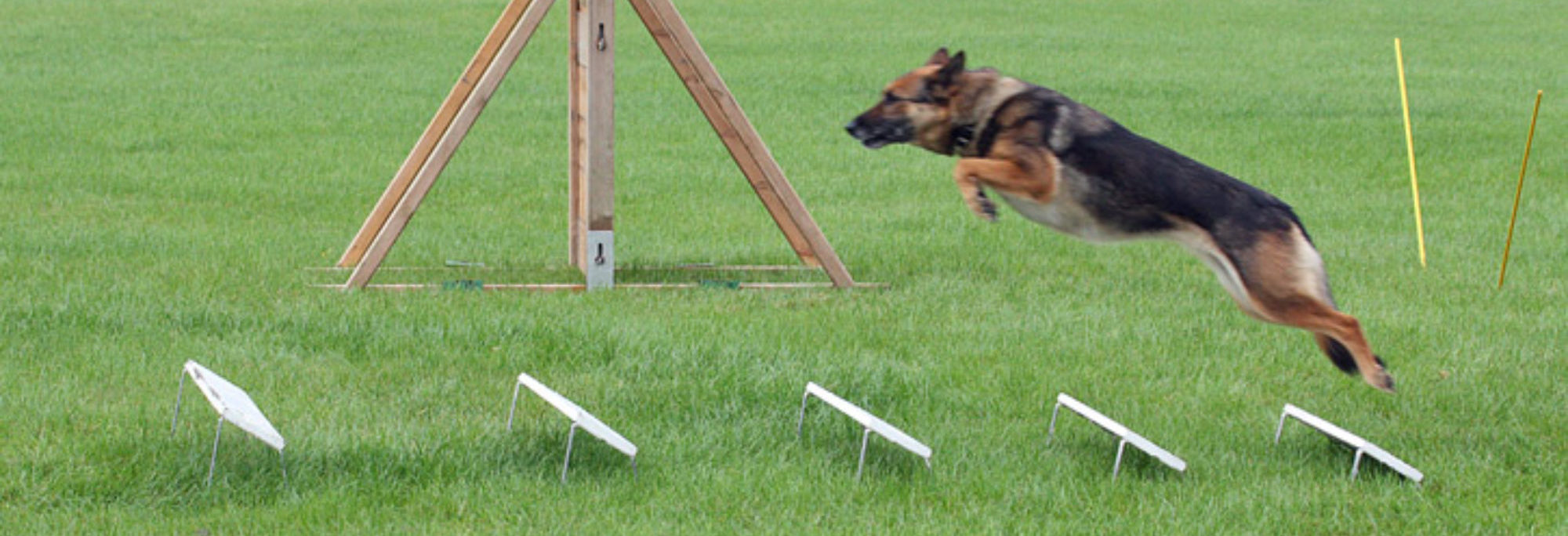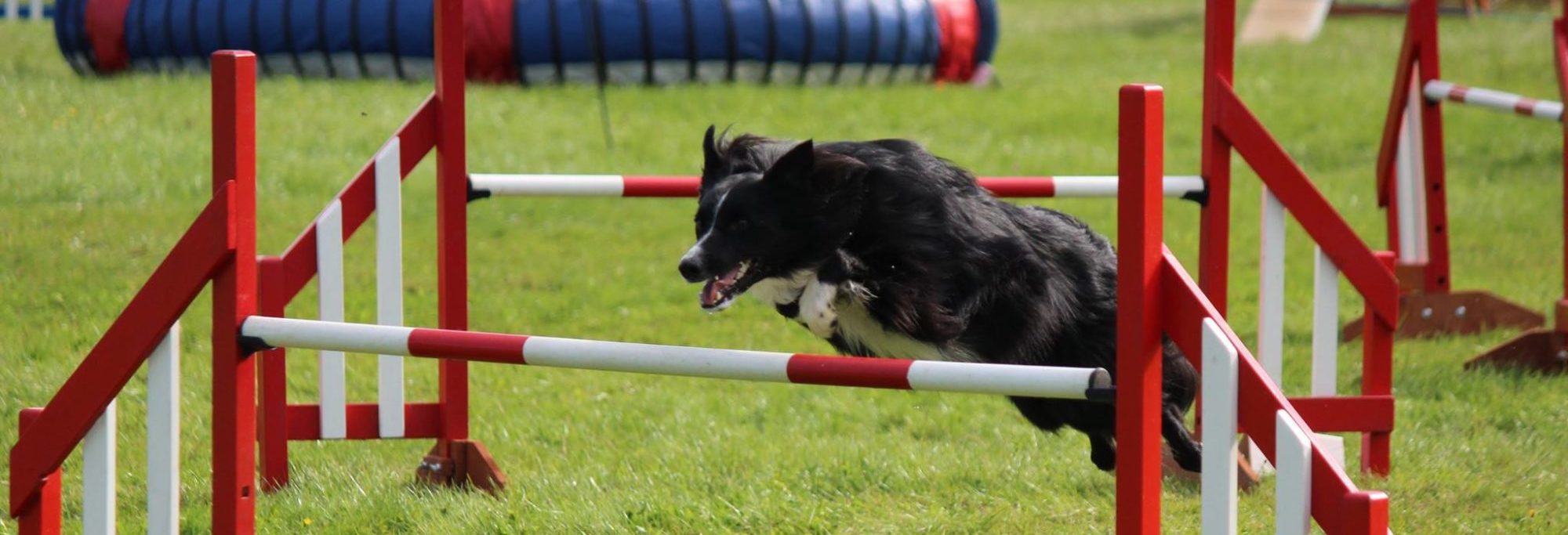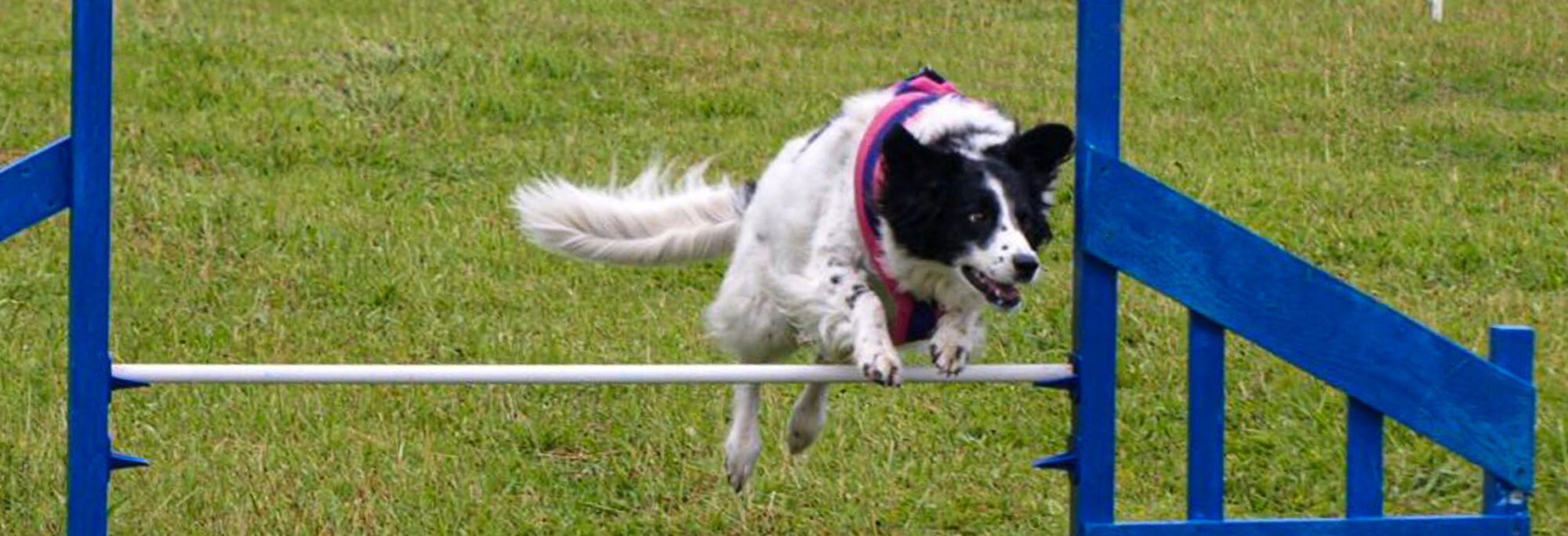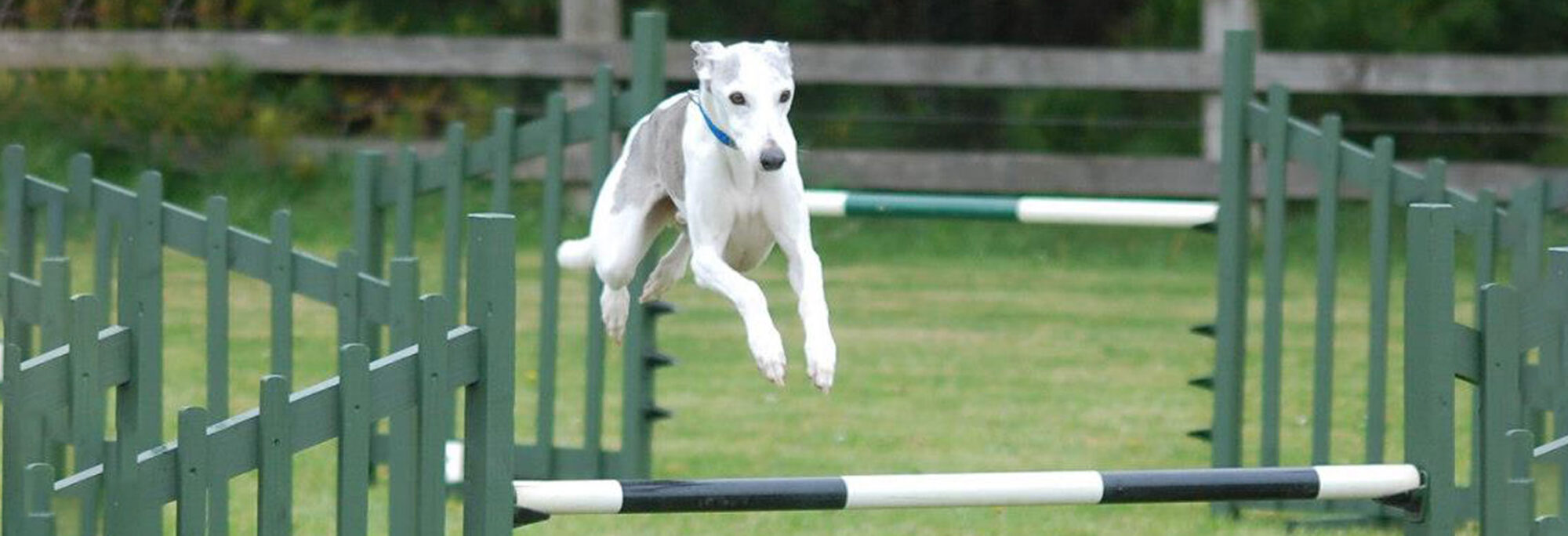What are Working Trials?
Simply, Working Trials are based on the work done by police dogs. It is the civilian’s sport where handlers train their dogs in the disciplines that a police dog would encounter whilst at work. This will include, tracking, searching for articles, agility, control and obedience. For some it will also include searching for criminals and man work. It is a demanding sport that needs the dog to be fit physically and mentally to deal with the activities involved. If you are interested in knowing a little more about the disciplines involved there is a brief description at the end of the article.
How is massage going to help a dog that is doing these activities?
To understand that we need a basic understanding of how muscles work and the activities the dog is expected to master.
So, briefly – Muscles are the flesh on the bones, giving the overall appearance of the dog and responsible for motion. There are over 700 muscles in a dog’s body, these pull on around 320 bones to create movement. Healthy muscles are strong, flexible and work most effectively when warm. The blood pumping through them delivers nutrients to the muscle and removes the toxins and waste products created from movement and exercise. When muscle becomes tired, overworked, it contracts and becomes tight, blood flow is not as effective in ‘feeding’ and cleansing the area and it becomes more prone to injury.
To get a dog to competition and working standard with the necessary physical and mental stamina takes a lot of training and repetition of exercises. This all takes its toll on the dog’s muscular structure and this can lead not only to injuries, such as strains or ligament sprains, but also myofascial problems. This is where the connecting tissue between the muscles gets jammed up instead of allowing them to slide and glide across each other. This makes the area very painful and many dogs will react quite strongly when touched or groomed on an area holding Myofascial Pain.
Another common problem resulting from extensive work, training and competing is Myofascial Trigger Points. These are hyper irritable bands, or knots, that can build up in the muscles after repetitive exercise as a result of the body not clearing away the toxins and waste products from the muscle created during use. Ever had that annoying knot build up in the back of your shoulder or lower back when you’ve overdone things a bit? Dogs are no different! You may see twitching along the back, behind the shoulder when they stretch, they may show lameness, stiffness and weakness in muscles and sometimes they may even be felt. Trigger points are painful and can refer pain to other areas, symptoms may disappear or become less pronounced with exercise, however, they will return with rest and over time will worsen. Booking your dog in for a massage to work these trigger points out and release areas of Myofascial Pain is a must.
Strains are common, tears to the muscle and/or tendons from a twist, pull or unexpected movement that pushes the muscle beyond its designed range. In severe cases muscles and tendons will completely rupture.
Listed below are some of the muscle groups that can be affected with injuries as a result of some of the exercises involved in working trials and the work it is based on.
Once a muscle is strained it will then repair itself by forming scar tissue, however, as this forms it will be more thickened and less flexible than the original fibres, making it more susceptible to further injury. With massage we are able to help restructure the muscle and tendon fibres as they repair to help keep the flexibility in the muscle and prevent reoccurrence.
Things to look out for:
- Lameness/Limping
- Stiffness on rising that eases once moving around
- Lack of enthusiasm/Lethargic
- Knocking the clear, not making the distance on the long jump
- Pulling out of the long jump or scale
- Not running out on Sendaways
- Reluctance to chase criminal
- Backing away in test of courage
- Unusual Gait
- Twitching along the back and/or sides
- Not standing or sitting straight
- Unwilling to take position after jumps
- Not weight bearing on a limb
- Slowing down
- Ageing quickly
- Yelp or cry of pain
If you are seeing any of these symptoms or a combination of them, your dog may be carrying a muscular injury. This is something that can be addressed with massage, don’t write them off just yet!
When is a training issue not a training issue?
Sometimes a dog will find an exercise difficult or unmanageable because of a muscular problem.
A massage session with your Canine Massage Guild practitioner to have their muscles checked will reveal and resolve these issues.
Canine Massage Guild’s Tips for Owners and Handlers
- Travelling – make sure there is good padding in the vehicle for your dog to lie on. It helps absorb vibrations which will affect posture and movement.
- Crates – spending long periods of time in crates in the car/van will make your dog stiff by causing to muscles shorten and trigger points form, walk your dog frequently.
- If your dog is wet or damp after working dry them off and/or use a coat to keep them warm, prevent muscles from becoming chilled and trigger points forming.
- Warm your dogs up before exercise, warm muscle is flexible, flexible muscle is more efficient, increases performance and is less prone to injury. Consider a workshop to learn how to do this
- Cool your dogs down after exercise, this encourages the blood to cleanse the muscles of the toxins and waste generated from exertion, prevents trigger points forming, and keeps the muscles supple, preventing stiffening and delayed onset muscle soreness.
- Have a regular massage for your Canine Athlete to keep those muscles flexible and working effectively, to enhance performance and have a long, pain and injury free working career.
![]()
Vreli Middleton is a qualified Canine Massage Therapist and member of the Canine Massage Guild. I worked my GSD in trials to WDeX and PD open. I own the Lawinick affix & occasionally breed working GSD’s. My ‘pups’ have gone on to qualify in TDeX, PDeX, ticket and reserve ticket holders, and a Working Trials Champion who also won the KCC’s.
Author: Vréli Middleton
For more information visit Vréli Middleton’s biography




